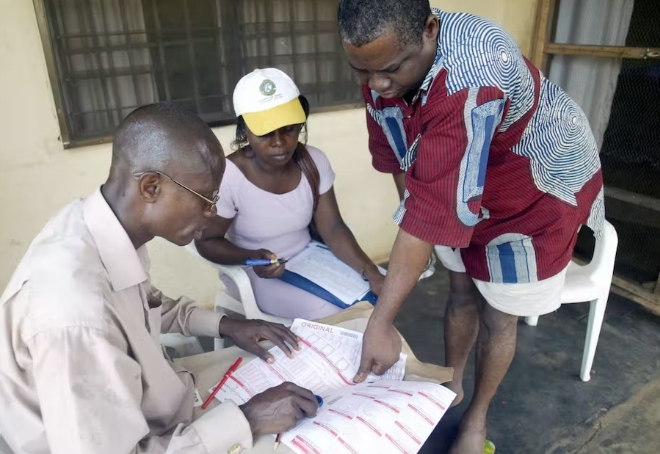The 2023 Nigeria’s population census exercise is approaching. This crucial exercise holds an invaluable opportunity to provide vital information required to make informed policy decisions for addressing the pressing challenges that the country is currently facing. It will definitely offer essential data for planners which can be used not just to quantify our current situation but also to design innovative strategies that can bring about real-life changes. There has never been a better time than now for leaders, citizens, and all Nigerians alike to work together on this complex task of collecting essential statistics needed for informed decision-making about our nation’s most critical issues.
For any government to achieve meaningful progress, its decisions and policies must be based on reliable data. Socio-economic data is a valuable tool for any government to determine the size, composition, and distribution of its country’s population; and Population census is the means of collection and compilation of such socio-economic data, which is needed for decision-making and policy formulation. Hence, the forthcoming 2023 census in Nigeria is a vital tool for the President-elect to have accurate statistics and valuable information that will enable his government make informed decisions regarding policy and planning. With the result of the 2023 Census, governments can plan for the citizens’ needs; and without this data, it would be difficult to properly address fundamental issues.

More so, this data will help private investors make decisions about where to put their money. Donors can also see if their aid is having an impact on people’s lives and provide help to people who truly need it. The government will know what type of agricultural produce is grown at where. Funds allocated could be used to build schools where they are needed. In a nutshell, this information is powerful and invaluable when making decisions that affect people’s lives. This makes conducting a successful census in 2023 all the more critical. Not only will this allow government decision-makers to plan effectively, but it can also give a much clearer picture of the country’s population and its needs.
Read Also: Constitutional Democracy and the Unconstitutionality of Interim Government
Over the years, lack of reliable statistics has made effective planning in Nigeria difficult. Nigeria has been struggling with lack of credible data since gaining independence in 1960. This means that decision-making in the country has been based on little or no accurate information. Successive governments had relied upon statistics obtained from sample surveys to gain some insights about the population. Whereas, a sample survey is merely used to collect data from some elements of a larger population. While a census allows the government to acquire information from every unit that makes up of different populations across the country.
Therefore, the 2023 Population Census is crucial for the newly elected President of Nigeria. Conducting an accurate census will facilitate access to reliable data that will function as a backbone for successful planning activities. Census data will give the government a better idea of how to allocate resources. By having access to information on how different demographics are distributed, authorities can ensure that the citizens have the necessary services they need. Certainly, a population census will provide invaluable insight into trends of things in Nigeria and lend crucial support for informed decision-making.

Despite the importance of the population census exercise, it is not without its challenges. One of the main shortcomings of the population census in Nigeria is the issue of accuracy. The accuracy of the past census has always been questioned. The British colonial government conducted the first population census in Nigeria in 1866. Since then, several census exercises have been conducted, with the most recent one held in 2006. However, the figures produced by such census exercises were not accurate because of the presence of multiple counting and other irregularities.
In fact,, one of the major issues that affected past census results in Nigeria is the highly politicized nature of the process. It is not uncommon for politicians and powerful individuals to influence the falsification of census data of their respective districts to gain more political leverage or advantage from the government. And this usually leads to an overall twisting of results that do not accurately represent Nigeria’s population as a whole. Furthermore, many people are reluctant to provide accurate information due to the fear of being targeted by authorities for tax, resulting in an under-counting and under-representation of certain sections, which occur when some individuals or households are not captured during the exercise.
Additionally, population census in Nigeria has not adequately captured the demographic characteristics of the population, such as educational attainment, health status, and employment status of the population. Lack of such information can hamper efforts to design effective policies and programs required to address the needs of specific groups within the population. Finally, In many developed countries, census data is collected using advanced technologies, but various population census in Nigeria has not kept up with technological advancements. Thus, population census in Nigeria has several significant shortcomings, which led to twisted population estimates and inaccurate data. These irregularities can have significant implications for policy and planning.

Notably, political interference and lack of transparency have always marred the process and eroded public trust in the outcome of the census exercise in Nigeria. It is, therefore, essential for the newly elected leader to address these shortcomings in the 2023 Census to ensure the accuracy, transparency, and relevance of the country’s data to the progress of the country. The President should focus on conducting a comprehensive Nationwide Population Census in 2023 as a major step toward addressing Nigeria’s problems.
More so, Nigeria is still struggling with a data-driven economy in the 21st century. A national database is of essential importance to map changes, trends, and patterns across various areas, such as population demographics, mortality rates, and infrastructure gaps. For instance, during the pandemic, the Canadian government was able to provide monetary relief aid for citizens who needed it due to its efficient database. Unfortunately, in Nigeria, there was difficulty in achieving the same level of assistance during the COVID-19 pandemic due to a lack of centralized information.

What’s more, a digital identity could also be integrated into a national database for authenticating citizens. Establishing a reliable digital identity and securing it is integral to the progress of Nigeria. Data stewards can use the National Identity Number (NIN), Phone Numbers and Bank Verification Number (BVN) to work together to create a single digital identity for Nigerians. Having access to a unified national database will open up new avenues of possibility. It would streamline contact tracing efforts during times of crisis or when a crime is committed. The insights into population dynamics can assist governments in providing better services and entitlements for their citizens; as well as lead to precise trends of predictions that are based on reliable data points.
Data is at the heart of any good decision-making process. However, to use data effectively for crafting the right strategy, it needs to be converted into something meaningful; this is where data analytics comes in. Data analytics takes raw data and uses sophisticated algorithms and analysis techniques to interpret it. This allows decision-makers to understand the implications behind the data and make informed decisions quickly and accurately. Close collaboration between policymakers and Data analytics experts is needed to give policymakers more actionable options for creating better policies and budgets. With the right data analytics tools in place plus skillful Data analysts, policymakers can be sure their decisions are based on sound evidence that leads to tangible results.

CONCLUSION
The data-driven economy is increasingly becoming a necessity for sustainable development. As such, reliable and accurate data sets are essential for governments to make well-informed decisions that can drive economic growth. Therefore, the importance of the census to a country cannot be overstated. It is an essential data source that helps the government build plans around the needs of its citizens, boosts their economic development and provides high-quality social services. Through the census, a government can get data on the total population of a country, where people are located, their age, gender, and other relevant socio-economic characteristics. This data is integral to the adequate provision of social amenities which are beneficial to the citizenry of Nigeria.
Read Also: THE ONLY WAY TO ENSURE A NEW NIGERIA
Simply put, accurate data plays an immense role in helping governments fulfill their socioeconomic obligations to the people. Nigeria needs to have a reliable and accurate population census. With such information, the nation will be able to plan on how to move forward with development policies. The 2023 Nigerian census could be the beginning of a new era if correct steps are taken by the new government to ensure that a transparent and credible census exercise that will produce reliable data required for development planning purposes is conducted.
Idowu E. Faleye, a certified Data Analyst, Political Activist, and writer, is a graduate of Politics & Public Administration. He’s the Founder/Chief Data Officer at EphraimHill Data Blog–a Data Reporting Site that is niche in Politics & Society. He can be reached at +2348132100608. or ephraimhill01@gmail.com











































![The Trend of Insecurity in Nigeria. [Part 2]](https://ephraimhilldc.com/wp-content/uploads/2024/09/Computer-Monitoring-of-Remote-areas.png)


































